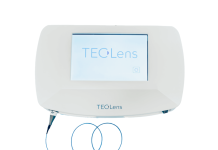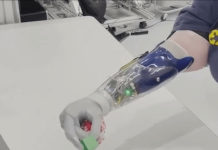Delfi Diagnostics, a Baltimore company developing a blood test for early detection of cancer, said it raised $100 million in funding, and is seeking to grow a team of cancer researchers and technologists specializing in machine learning.
The Series A round was led by OrbiMed, a healthcare-focused investment firm based in New York. It also included participation from Menlo Ventures, Samsara Biocapital, Illumina Ventures, AV8 Ventures and Windham Venture Partners, which are existing investors. New investors participating in this round included Foresite Capital, Northpond Ventures, Cowen Healthcare Investments, Rock Springs Capital, and funds and accounts advised by T. Rowe Price. The company previously raised $5.5 million in seed funding in 2019.
Delfi was founded in 2019 by Dr. Victor Velculescu, a professor at the Johns Hopkins University School of Medicine who has made key discoveries in cancer and genomics and the company’s CEO. Building on work Velculescu’s lab, the company licensed technology from the university is based in the university’s FastForward space in Remington. Delfi is developing a new kind of test in the area of liquid biopsy, which can detect cancer from a blood sample. This holds promise to improve on the tissue sample that is taken in a surgical setting that is widely used currently.
Delfi said its new approach is creating tools that can detect evidence of a tumor from a blood sample, and pinpoint the tumor’s location in the body. Combining sequencing and machine learning algorithms, the company said it developed tests for “wide and cost-effective distribution and adoption.”
Specifically, Delfi focuses on “fragmentomics of cell-free DNA,” which Velculescu describes this way: “When the DNA from the tumor cell gets released, it is naturally broken into fragments that reflect the type of cell from which it came, and we can pick up that signal, inclusive of length of fragments, genomic features, DNA content, which all reflect whether it is derived from a cancer and if so where the cancer originated.”
“We think the fragmentomic approach will have the best performance compared to other liquid biopsy approaches, while remaining cost effective,” Velculescu said.
Now, the company is working through pre-clinical development for the test. It currently has fewer than 20 employees, but is looking to expand, with a boost from the funding.
“This large Series A allows us to quickly build out our team across all critical departments, to expand our R&D work, and to continue to build the clinical evidence necessary in clinical trials to ensure adoption,” Velculescu said.
Along with the implications for healthcare and the early detection of cancer, the area of detecting cancer has brought significant venture investments for companies in recent years. In Baltimore, we saw Thrive Earlier Detection Corp., another Hopkins spinout, raise $367 million in a pair of rounds prior to being acquired in a $2.15 billion deal last year.
It also shows how scientific strength at the region’s universities have helped power the innovation economy. Velculescu is also a cofounder of Canton-based Personal Genome Diagnostics, which has built a base of employees and raised more than $140 million in funding.


